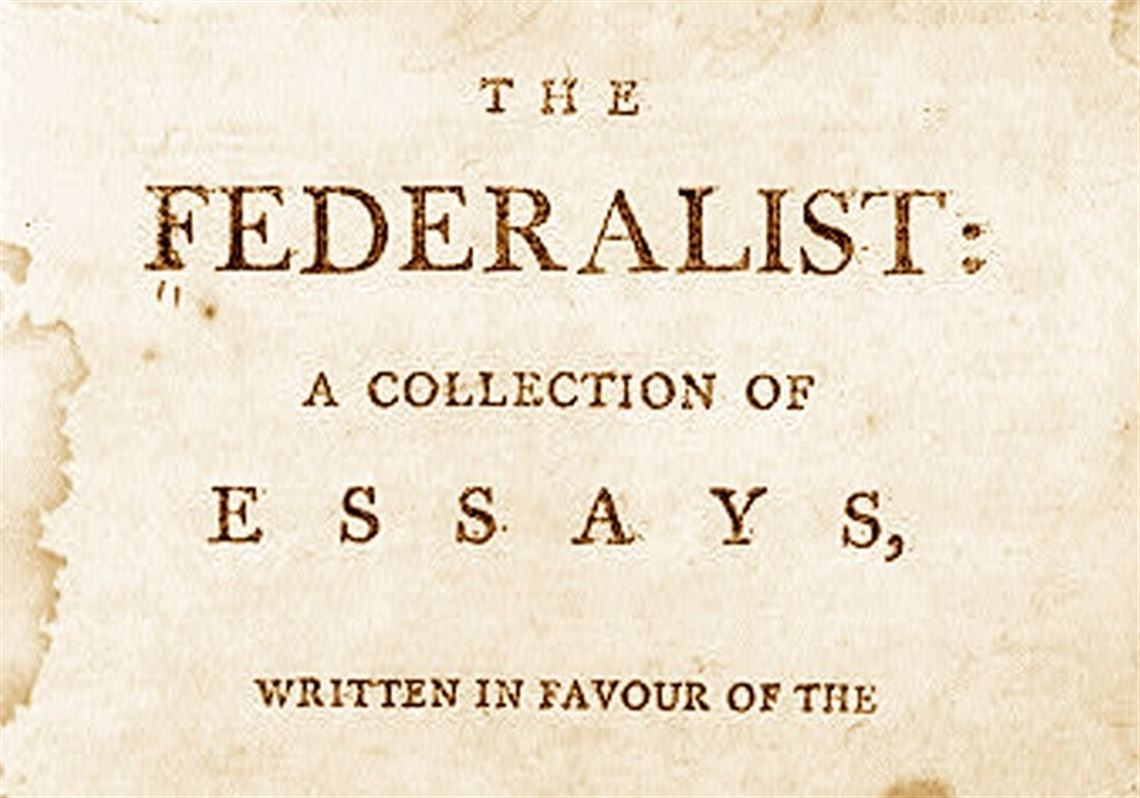Bring back Publius
What we don't know can make us smarter
The most influential political essays ever to appear in American newspapers could not be published in newspapers today for one simple reason: they were written anonymously. What came to be called the Federalist Papers were published over the nom de plume "Publius." The authors were Alexander Hamilton, James Madison and John Jay, but they hid their authorship in order to emphasize their arguments in favor of ratification of the Constitution. Even today scholars debate which of the three authors wrote certain of the four-score pieces that first appeared in New York newspapers.
Pseudonymous writings were common in the eighteenth century. The Enlightenment emphasized rationality over authority; a good argument was a good argument regardless of who made it. No less important, authors assumed sufficient intelligence and attention in their readers to enable them to follow and appreciate sound reasoning.
We live in a different time. Almost never do newspapers publish opinion essays without identifying and often describing the author. Presumably they believe this information matters to their readers. A piece on climate change by an environmental activist will get a different reception than a piece by a coal-industry lobbyist.
There is something to this view. People with axes to grind tend to grind those axes.
At the same time, this view insults the intelligence of readers. An argument is only as good as the evidence that supports it and the logic that ties the evidence to the conclusion. Interested readers will be able to evaluate the evidence and the logic. At least they will if they get in the habit of having to do so.
Which raises what might be the real reason for the insistence on identifying authors. It saves time and mental effort for readers. If they agree with the group the author represents, they can endorse the argument without having to analyze it. Politics today is relentlessly a team sport; people choose sides and stick with the team almost regardless of how the team platform changes.
A variant on the team-sport explanation involves the ascendance of identity politics. Individuals are understood to belong to groups according to shared descent, experience or other trait, and this commonality is presumed to infuse if not determine their views on political issues.
Again, there is something to this observation. Immigrants doubtless see some things differently than the native-born do. A woman might understand issues peculiar to women better than most men. It can be useful for those not in the group to learn how the world looks to those inside it.
There are two problems with this conception, though. The first can be the implication that others in the group share or ought to share the views expressed. An emphasis on diversity between groups tends to flatten out diversity within groups.
The second problem is the easy extrapolation from separate experiences of different groups to separate truths for the groups. As a philosophical matter, "my truth" may be indeed different from yours. But as a political matter, this notion is a recipe for deadlock or disaster. If we each claim a truth arising from our group membership, we largely preclude any chance of bridging the gap between us, because "truth" is nonnegotiable. And we risk surrendering power to the largest or most mobilized group. In America, where white people are still the largest group, we play into the hands of white nationalists.
Imagine a reversion to the practice of the days of the Federalist Papers. Imagine readers confronting an essay whose author was unknown to them. They would actually have to pay attention and make up their own minds.
It would be a bracing experience. Good for them, and good for democracy.


Wonderful piece on a topic I have never given much thought to but which you illuminate in an important way. Thank you, Bill Rusen